How to Survive Cyberbullying
Short- and long-term tips for dealing with online trolls.
In 2003, Emmy-nominated TV anchor Catherine Bosley was vacationing with her husband in Key West, after recovering from a life-threatening illness. On a whim, she decided to leave her comfort zone and enter a wet T-shirt contest. She could never have prepared for the consequences she would face.

A year later, explicit video footage of her escapade appeared online, on a Girls Gone Wild-esque exhibitionist website. The footage spread from site to site. Residents of her hometown of Youngstown, Ohio, recognized Bosley's face in the video, and she lost her job as a consequence. All along the way, comments and emails were pouring into Bosley's inbox, insulting everything from her appearance to her character. Some said she should be ashamed of herself; others even said she deserved to die.

If you've spent any time online, you doubtless know how it feels to receive online hate comments: insults, mocking, trolling; even threats from anonymous strangers.
A 2016 survey from the Cyberbullying Research Center found that over a third of middle- and high-school students have experienced cyberbullying, with hurtful comments, rumor-spreading and sexual harassment among the most prevalent forms. And a 2017 Pew Research Center study found that an even higher 41 percent of U.S. adults have experienced harassment online, including offensive name-calling, purposeful embarrassment and physical threats.
But as social media becomes more integral to our work, school and home lives, how can we survive the haters and trolls with our self-worth and mental health intact? We asked experts what works — and what doesn't.
Surviving in the short term
DON'T feed the trolls: There's one tip that survivors and experts seem to agree on: Don't respond to the comments. For Bosley, resisting the urge to get into fights was paramount.
Get instant access to breaking news, the hottest reviews, great deals and helpful tips.
"It was so hard not to respond," said Bosley, who has given a Ted Talk on her experience. "But I knew that if I responded, it was only going to fuel the fire."
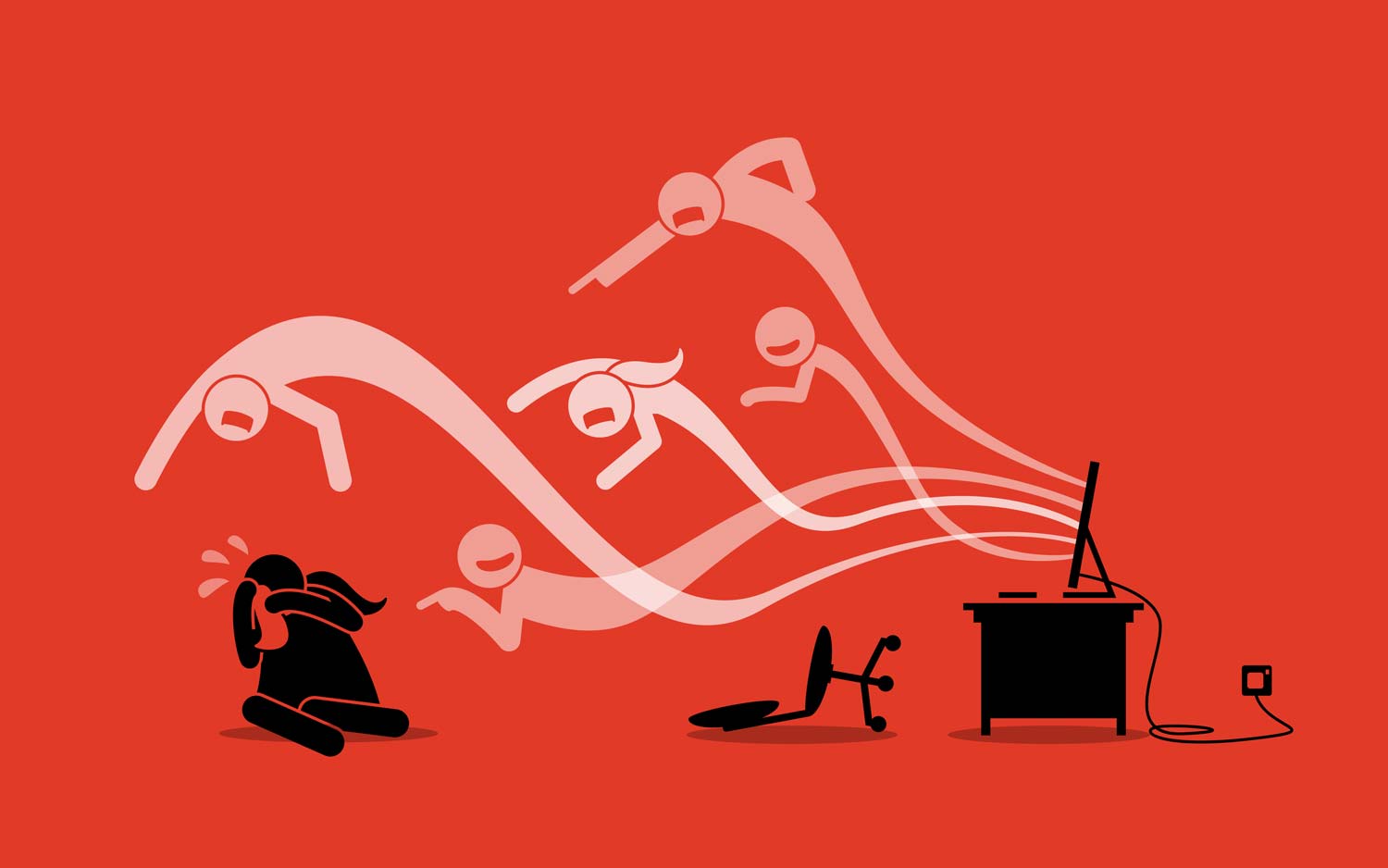
While you might hope that responding to a troll makes them realize they were wrong to insult you, you're more likely to demonstrate that they've succeeded in upsetting you — and give them an opportunity to upset you further.
"Bullying isn't about who's right and wrong," said Patrice O’Neill, founder and director of the anti-bullying nonprofit Not In Our Town. "It's about power and trying to gain power by diminishing someone else. Try not to give that power to someone who is bullying you. It'll only encourage them to seek that power further."
MORE: How to Teach Your Kids to Be Safe Online
There's one exception to this: If you're being accused of a crime or other behavior that could impact your professional reputation (such as plagiarism, fraud, racism or misogyny), it might be worth clarifying your intentions (if you think your critics are wrong) or apologizing (if they're right). But even in these situations, avoid direct engagement with your commenters, said Alexis Moore, a risk-management consultant who specializes in cyberbullying, and author of Surviving A Cyberstalker: How To Prevent And Survive Cyberabuse And Stalking.
"Never engage with the predator directly," Moore said. Instead, post a public "follow-up" addressing their concerns, which is less likely to devolve into more antagonism. "Something along the lines of 'A few are saying that I might be a ‘racist'. I’d like to clarify my post,’” she recommends.
DO take a break from the internet: You don't need to leave social media forever — but experts say that if mean comments are affecting your mental health, you should take a break.
"Once I stopped looking at the comments, I started to feel a little bit stronger," Bosley said. "Abandon the haters and close that computer."
"Just meet up with your friends like we used to," Moore advised. "We've got telephones. You don't need to use social media. You really don't."
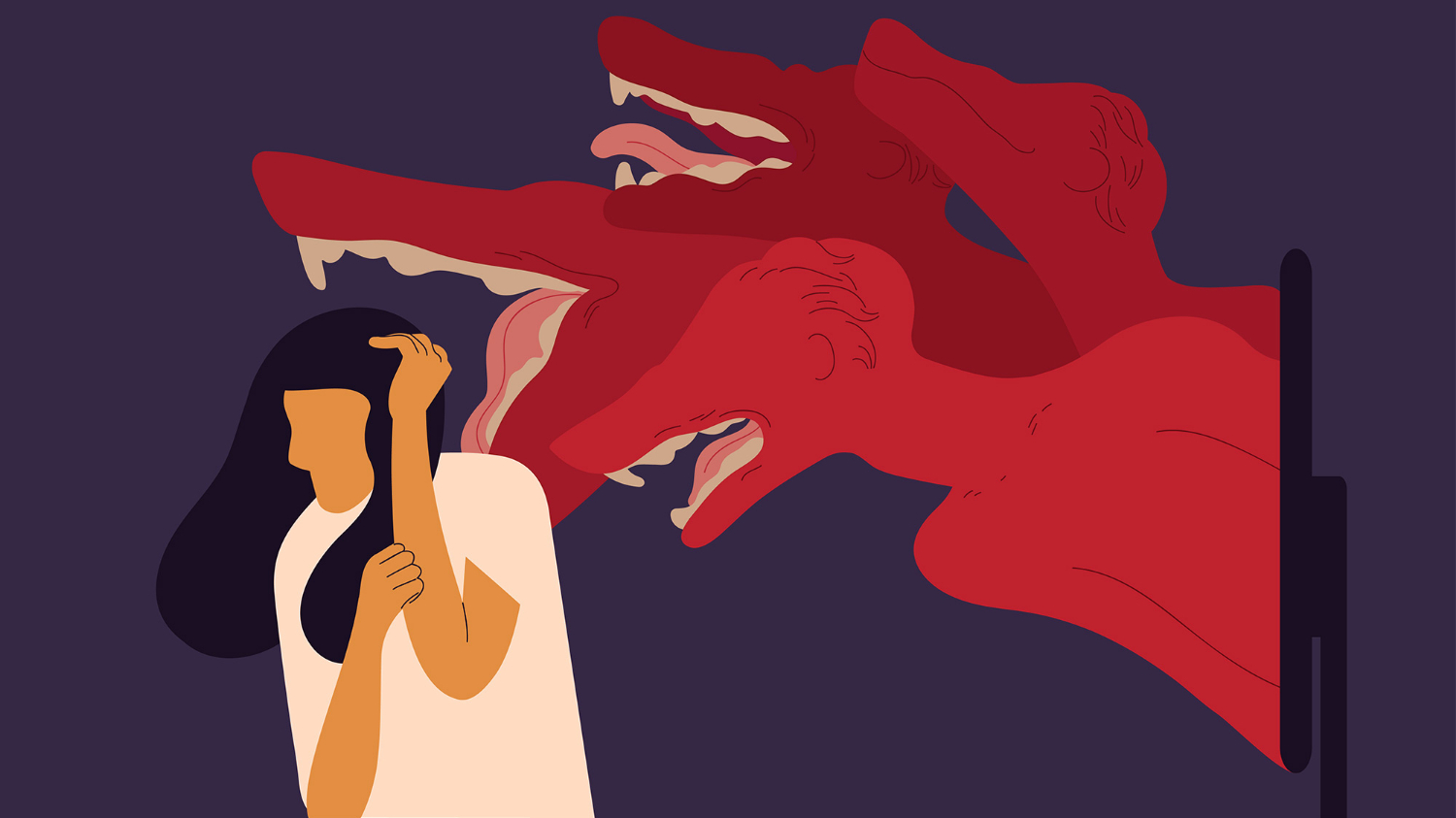
DO talk to others about your experience: In her freshman year of high school, Aija Mayrock experienced a teenager's nightmare on social media: A classmate had dressed up as her for Halloween, and the caricature went viral. Mayrock's social media were bombarded with trolls, insults and even threats. “My classmates told me that my life was worth nothing, that I'd be better off dead," Mayrock said.
Mayrock, who is now an anti-bullying activist and the author of The Survival Guide To Bullying, kept her experiences with online shaming to herself at first — but that made her feel only worse.
"I suffered from depression and anxiety because of the fact that I did not allow myself to talk about it," Mayrock recalled. "I finally opened up to my parents, and that was what finally helped me heal and cope."
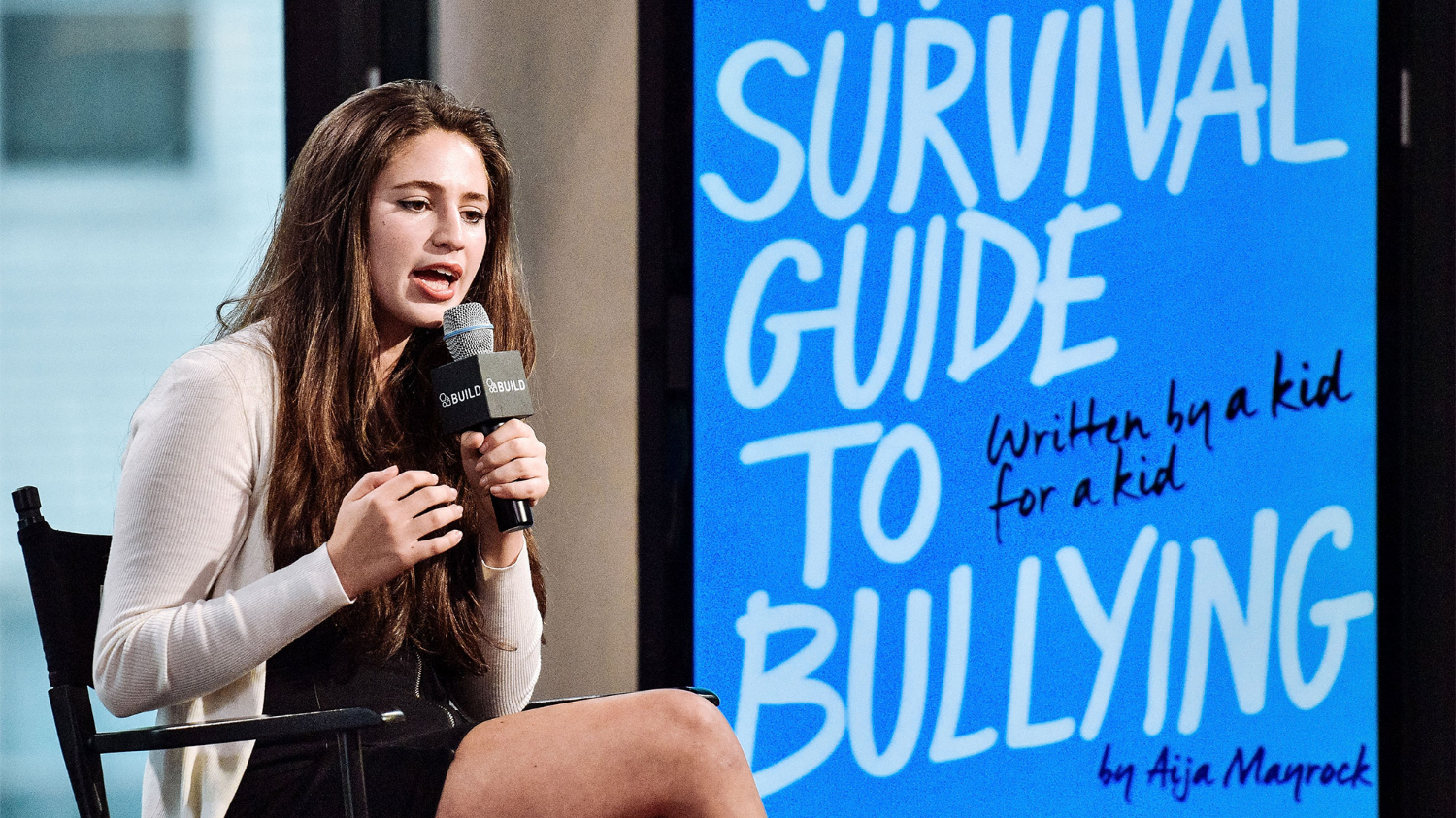
If you're not sure where to start, Mayrock recommends making a list of the top five people you're most comfortable talking to, including family members, adult friends, or therapists and counselors. Make your way down this list, and share your feelings with each of these people as you grow more comfortable doing so. These people know you much better than trolls do, and their support can counteract the hostility you faced online.
It's also imperative that you stay connected to supportive friends, family or professionals to replace the community you used to find on social media. Otherwise, you may be tempted to go back online and keep reading comments.
DO keep an eye out for repeat behavior: Most online trolls, while they may be scary or frustrating, are just that — trolls. But some harassers may pose a greater danger, especially if they're making repeated threats to your safety.
Moore recommends a "three strikes, you're out" policy. "If someone's bothered you more than three times in six months, take notice of them," she said, though adding that "that doesn't mean acting like a crazy-ass fool." Rather, you should be documenting: Write down the offender's handles, screenshot their comments and consider whether it's worth approaching a lawyer or authorities.
Thriving in the long-term
DO find the right time to go back online: Whether or not to return to social media is completely your choice. If you do return, you'll want to make sure it's at a time when the hate has calmed down enough, and you have recovered enough, for social media to be a safe environment again.
Mayrock left social media for years after her shaming. If you feel that you're ready to go back, she recommends logging into one social media account for 10 minutes each day. Take notes about how you feel before and after, to get a full picture of how it's affecting you.
If it's consistently making you feel worse, stay off. Twitter, Facebook and Instagram aren't going anywhere.
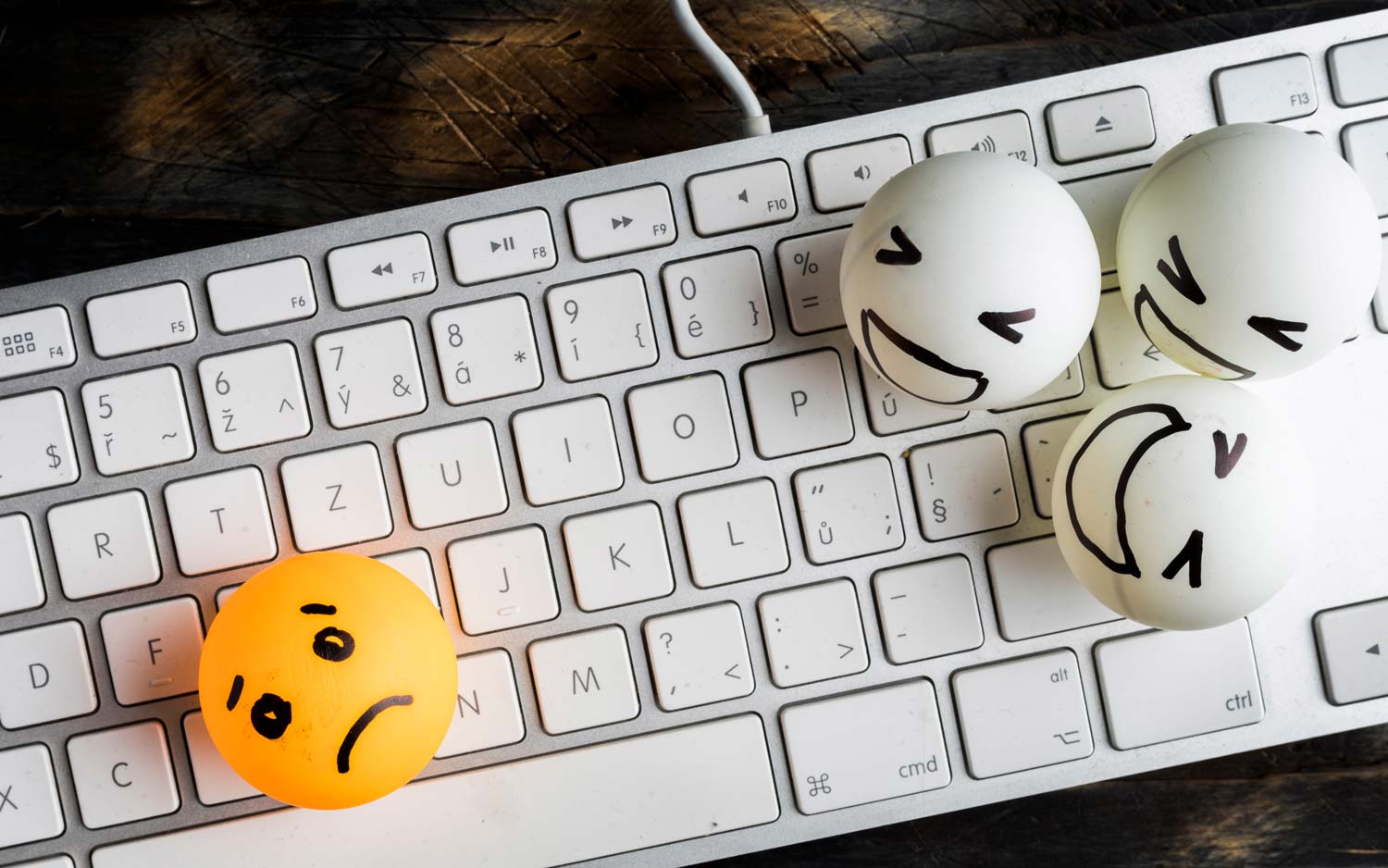
DO try new things (offline): Social media is a big time commitment for many users, and cutting it out of your life, even for a short period, can be a big change. It's not unusual to feel a sense of isolation when you're not plugged into your Facebook or Twitter feeds, as well as the temptation to peek at hateful comments.
Bosley recommends searching for an offline hobby to occupy that time and energy, and to remind you of the opportunities for fun that exist outside the cyberworld. For her, it was running and spending time with her cat.
MORE: Parental Monitoring: How Much Is Too Much?
Let your loved ones know about the new activity, so they can help you stick with it, even on days when it’s hard. "Family and friends pulled me through one day at a time," Bosley said. "They said, 'Get out of bed. Get out of the house. Try to live. Stop going on the internet.'"
DO support others in similar situations: Many victims of bullying feel better about their own situations after sticking up for others who are receiving hate, said O’Neill, and online hate is no exception.
"Over and over again, we've seen that people who have been targeted and supported are more likely to go and stand up for someone else," O’Neill said. "We create a cycle of support."
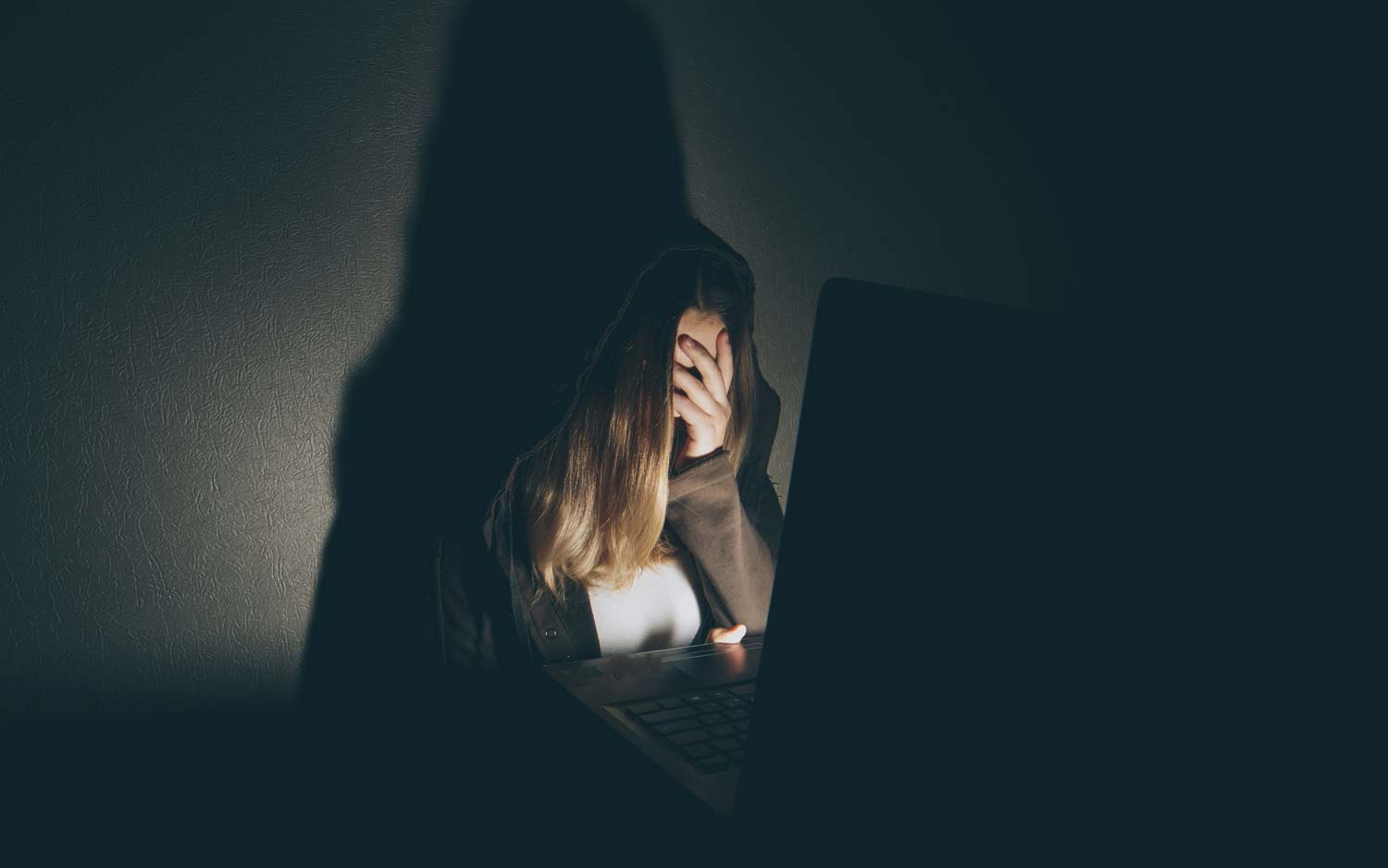
Not only will you likely feel good about supporting another person, but you'll also see firsthand that you’re not alone.
"Understand the nature of bullying, the role of gender bias, racism, intolerance, anti-Semitism, deepening our understanding of that is incredibly important," O’Neill said. In her experience with online communities, interacting with and supporting other victims can help you "draw strength from the fact that this is part of a larger attack...to see this as a collective problem, not just an individual problem." The problem is with the trolls — not with you.
That said, even in these situations, be careful not to engage with the trolls and become a target yourself. Instead, send a supportive message directly to the victim.
DON'T try to forget about your experience: Neither Mayrock nor Bosley has forgotten the bullying they faced. Instead, they've learned and grown from their experiences, and used them to help others.
"You don't really get past something like this," said Bosley, who still receives comments about her pictures from time to time. "It becomes part of you. But surviving something like this isn't something that should just be pushed away and forgotten. It gives you more empathy, and more of an understanding."
You may not go on to become an anti-bullying activist — but you will survive.
Credit: Shutterstock
Monica Chin is a writer at The Verge, covering computers. Previously, she was a staff writer for Tom's Guide, where she wrote about everything from artificial intelligence to social media and the internet of things to. She had a particular focus on smart home, reviewing multiple devices. In her downtime, you can usually find her at poetry slams, attempting to exercise, or yelling at people on Twitter.
